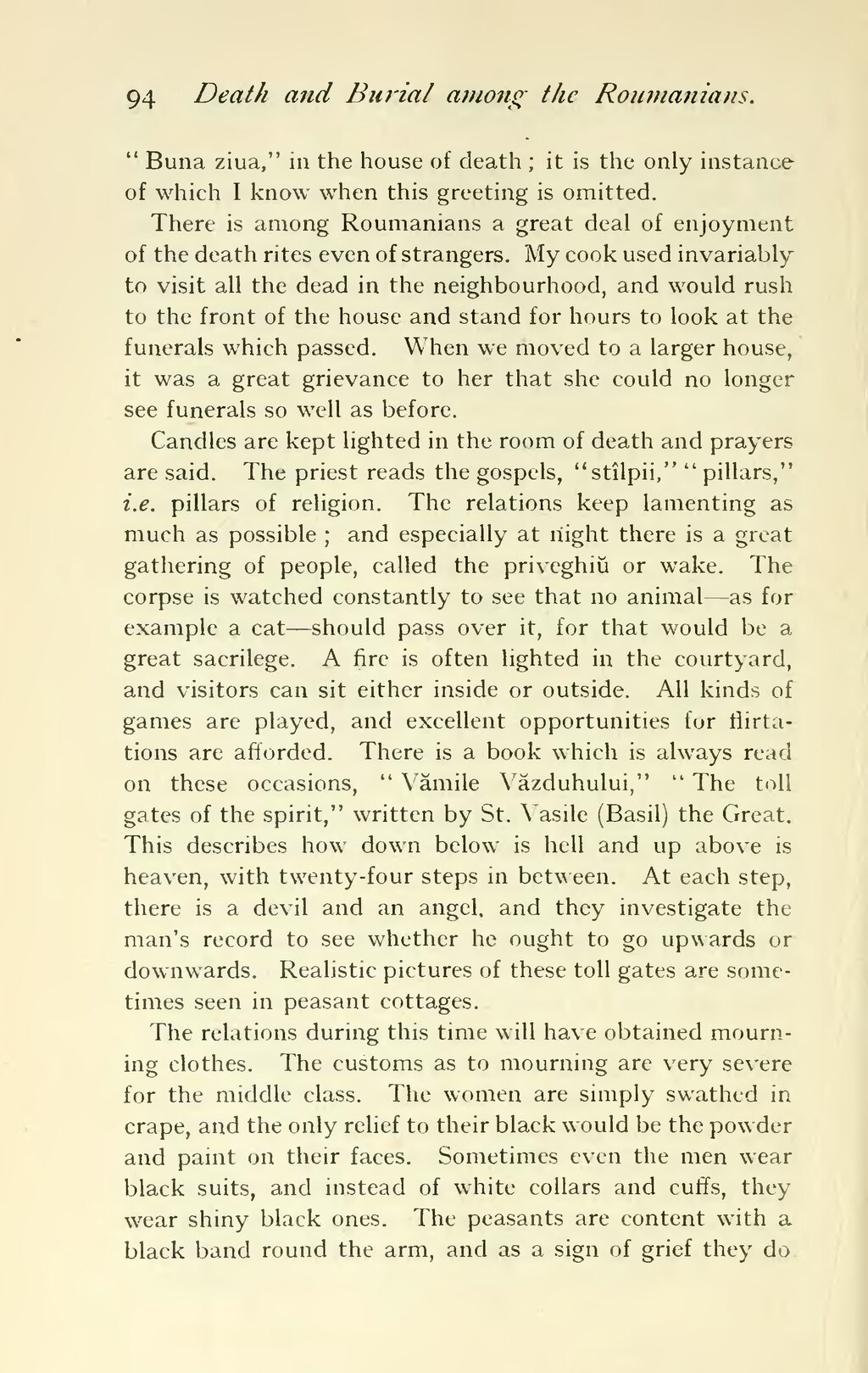“Buna ziua,” in the house of death; it is the only instance of which I know when this greeting is omitted.
There is among Roumanians a great deal of enjoyment of the death rites even of strangers. My cook used invariably to visit all the dead in the neighbourhood, and would rush to the front of the house and stand for hours to look at the funerals which passed. When we moved to a larger house, it was a great grievance to her that she could no longer see funerals so well as before.
Candles are kept lighted in the room of death and prayers are said. The priest reads the gospels, “stîlpii,” “pillars,” i.e. pillars of religion. The relations keep lamenting as much as possible; and especially at night there is a great gathering of people, called the priveghiŭ or wake. The corpse is watched constantly to see that no animal—as for example a cat—should pass over it, for that would be a great sacrilege. A fire is often lighted in the courtyard, and visitors can sit either inside or outside. All kinds of games are played, and excellent opportunities for flirtations are afforded. There is a book which is always read on these occasions, “Vămile Văzduhului,” “The toll gates of the spirit,” written by St. Vasile (Basil) the Great. This describes how down below is hell and up above is heaven, with twenty-four steps in between. At each step, there is a devil and an angel, and they investigate the man’s record to see whether he ought to go upwards or downwards. Realistic pictures of these toll gates are sometimes seen in peasant cottages.
The relations during this time will have obtained mourning clothes. The customs as to mourning are very severe for the middle class. The women are simply swathed in crape, and the only relief to their black would be the powder and paint on their faces. Sometimes even the men wear black suits, and instead of white collars and cuffs, they wear shiny black ones. The peasants are content with a black band round the arm, and as a sign of grief they do
